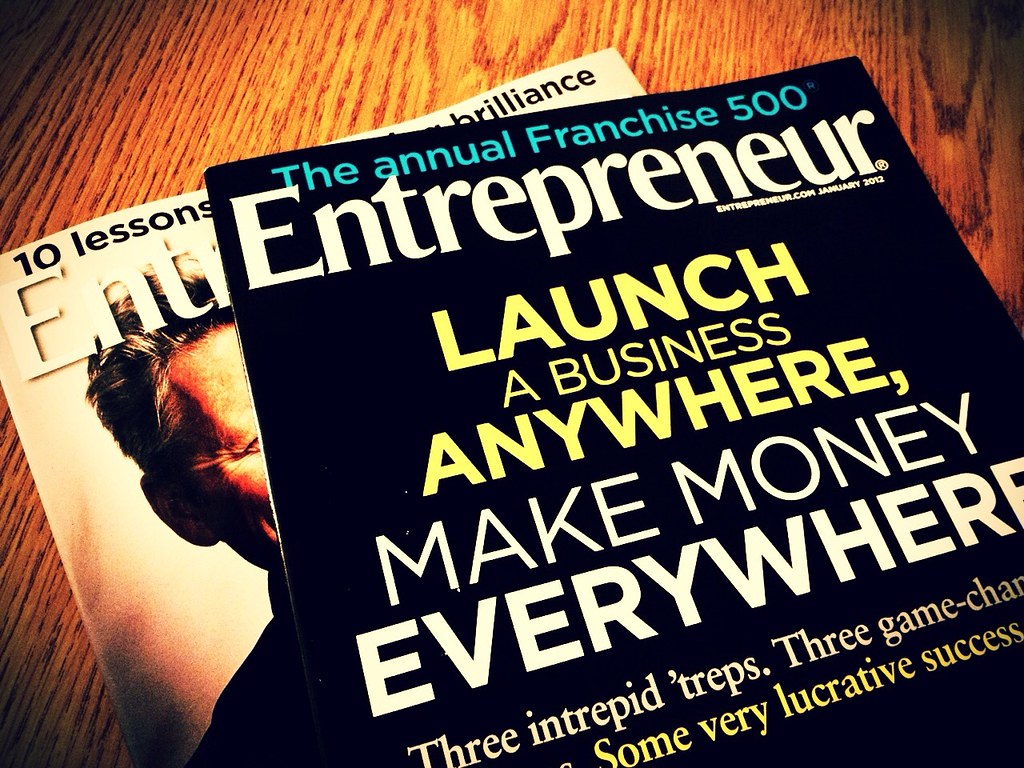Introduction: Decoding the Entrepreneurial Puzzle
Few debates in the world of business and psychology have sparked as much fascination—and as much contention—as the question: Are entrepreneurs born, or are they made? It’s a compelling inquiry that sits at the intersection of genetics, psychology, education, culture, and personal experience. On one side, proponents of the “born” theory argue that entrepreneurs possess inherent traits—risk tolerance, vision, resilience—that are hardwired into their DNA. On the other side, advocates for the “made” theory believe that entrepreneurial behavior is cultivated through upbringing, exposure, mentorship, education, and life circumstances. This nature vs. nurture debate isn’t just academic—it has profound implications for how we design education systems, fund startups, mentor aspiring founders, and understand the future of innovation. In this article, we’ll take a deep dive into both perspectives, analyzing scientific evidence, real-world examples, and the subtle interplay between innate talent and acquired skill. The goal isn’t to pick a side, but to appreciate how both elements may collaborate to create what we call “the entrepreneurial spirit.”
Innate Traits: The Case for ‘Born’ Entrepreneurs
- Personality traits like risk tolerance, high energy levels, assertiveness, and the drive for independence have long been associated with entrepreneurial success, and research in behavioral genetics suggests that many of these traits have a heritable component. For example, studies involving twins have shown that identical twins (who share the same genetic code) are more likely to both become entrepreneurs than fraternal twins, even when raised apart. This implies a genetic predisposition toward entrepreneurship. Some individuals seem to naturally gravitate toward risk and uncertainty, not as something to be feared, but as a natural state of challenge and opportunity. These people may demonstrate business acumen from an early age, launching ventures in childhood, whether it’s selling lemonade or starting a YouTube channel, without anyone prompting them. They often exhibit a higher-than-average tolerance for ambiguity and uncertainty, which is essential in the chaotic, unpredictable world of startups. These “born” entrepreneurs don’t just dream big—they pursue those dreams with tenacity that seems innate, as if wired into their identity.
- Cognitive tendencies such as lateral thinking, creative problem-solving, and divergent reasoning are also cited as inborn advantages that may give certain individuals an edge when spotting opportunities or inventing novel solutions. In many cases, this natural aptitude emerges not through formal education but through an intuitive way of understanding systems, patterns, and human behavior. Some entrepreneurs appear to possess an instinctive radar for market gaps or customer pain points. They can synthesize disparate inputs—trends, human behavior, intuition—into breakthrough business ideas without deliberate analysis. Think of legendary figures like Richard Branson, Steve Jobs, or Elon Musk. Their unconventional thinking styles often appeared long before they stepped into formal business roles. These figures are frequently labeled as “visionaries” not because they learned to be one, but because they already were, and simply needed a canvas to express what was already burning within.
- Biological predispositions like dopamine sensitivity and prefrontal cortex activity may influence how individuals perceive risk, reward, and motivation. Neuroscience has shown that entrepreneurs often exhibit increased activity in areas of the brain associated with goal-directed behavior and decision-making under pressure. They may be more reward-sensitive, meaning they are more motivated by potential success than they are paralyzed by potential failure. This wiring can drive them to take chances others wouldn’t even consider. They are often internally driven, possessing a relentless desire to create, improve, or conquer challenges—not for external validation, but for the satisfaction of bringing something into existence. These brain-level differences suggest that in some people, the biological roots of entrepreneurship are deeply embedded in their neural pathways.

Environmental Conditioning: The Case for ‘Made’ Entrepreneurs
- The influence of upbringing, exposure to entrepreneurial role models, early experiences with autonomy, and socio-economic conditions often act as the breeding ground for entrepreneurial ambition, shaping individuals who may not have had a genetic predisposition but were molded through life events. Many successful entrepreneurs cite pivotal moments, mentors, or hardships that forced them to think independently, hustle, and create solutions. Growing up in a family business, facing financial hardships, or being exposed to cultures that celebrate innovation often instill a mindset of self-reliance and creative resourcefulness. These entrepreneurs may not start off with all the classic traits but gradually develop them through repeated experience, trial-and-error, and necessity. Over time, they become resilient, innovative, and strategic—not because they were born that way, but because their environment demanded it.
- Education, mentorship, and structured entrepreneurial programs can play an instrumental role in equipping individuals with the necessary skills, mindset, and network to succeed as founders—even if they lacked any prior inclination. Business incubators, startup accelerators, online communities, and entrepreneurship curricula have democratized access to knowledge and support. A person who may never have seen themselves as entrepreneurial can be transformed when given the right tools, encouragement, and opportunities. Programs like Y Combinator or Techstars don’t just teach business models; they instill confidence, develop strategic thinking, and expose participants to the real-world pace of startup life. These environments can reshape identity, transforming a passive observer into an active builder. Countless case studies exist of individuals who stumbled into entrepreneurship through side hustles, school projects, or chance encounters—only to discover that they could learn, adapt, and eventually thrive.
- Cultural and societal support systems are also pivotal in nurturing entrepreneurial growth. In ecosystems where failure is stigmatized, capital is scarce, or bureaucratic red tape is overwhelming, even the most naturally gifted entrepreneur may never reach their potential. On the flip side, environments like Silicon Valley, Bengaluru, Tel Aviv, or Berlin create rich soil for ideas to take root. Peer networks, startup-friendly regulations, investor confidence, and social norms that celebrate entrepreneurship make a massive difference in how many “founders” are actually born. The nurture argument suggests that the infrastructure around you may matter more than your internal spark. Even the best idea needs a climate to grow in. And so, countries, cities, and communities play a direct role in shaping whether entrepreneurial potential is activated—or suppressed.
The Middle Path: Entrepreneurship as a Dance Between Nature and Nurture
- The most realistic perspective is that entrepreneurship isn’t exclusively a product of either nature or nurture—but a unique interplay of both, where innate tendencies meet environmental stimuli to shape the final outcome. You may be born with raw entrepreneurial ingredients—ambition, curiosity, competitiveness, a high risk appetite—but unless life presents you with the chance to act on them, they may remain dormant. Likewise, you can be entirely average in terms of personality traits, but with enough exposure, training, practice, and encouragement, you can grow into an extraordinary founder. Entrepreneurship, like any complex human activity, is not binary. It’s not about having “it” or not. It’s a continuous learning curve, where success is more often the result of perseverance, adaptability, and access than of fate or fortune.
- Many successful entrepreneurs demonstrate a ‘growth mindset’—a belief that talent and ability can be developed through dedication and learning. This mindset aligns more with the “made” theory but is often supported by internal wiring that values challenge and self-improvement. These entrepreneurs don’t stop growing after their first product launch or funding round. They seek mentors, read voraciously, iterate constantly, and treat failure as feedback. What this shows is that while some foundational characteristics might help at the beginning, long-term success often comes down to how well you learn, adapt, and grow over time. The entrepreneurial journey is not a sprint, nor is it purely genetic. It’s an evolution.
- In the age of digital tools, AI, no-code platforms, global learning communities, and startup democratization, the barriers to becoming an entrepreneur are lower than ever before—favoring the “made” over the “born.” Talent is no longer confined to those who inherited the right DNA or grew up in Silicon Valley. A teenager in Nairobi or a mother in Mumbai can build world-changing startups if they have internet access, an idea, and the hunger to execute. Platforms like YouTube, Medium, Substack, or Indie Hackers are filled with stories of people who didn’t start out as “entrepreneurial types,” but through curiosity, education, and consistency, they made themselves into business builders. In a way, we’re entering an era where nurture might be outpacing nature—not because nature stopped mattering, but because nurture finally caught up.
Conclusion: The Entrepreneurial Flame Can Be Sparked, Not Just Inherited
So, are entrepreneurs born or made? The most truthful answer is both—and more importantly, neither by itself is sufficient. Being born with entrepreneurial tendencies might give you a head start, but it doesn’t guarantee success. You must still learn, build, fail, unlearn, and adapt. Likewise, being “ordinary” in personality or background doesn’t mean you’re locked out of the entrepreneurial game. You can become the kind of person who builds, leads, and innovates—if the environment is right and you commit to the journey. Entrepreneurship is a mindset, a skill set, and a habit, just as much as it is a personality trait. It is the constant interplay between who you are and what you experience. The next great founder might be someone who was coding since age 8—or someone who stumbled into a problem at 38 and refused to wait for someone else to solve it. In the end, the real question isn’t whether you’re born to be an entrepreneur—it’s whether you’re willing to become one.
You may also like


